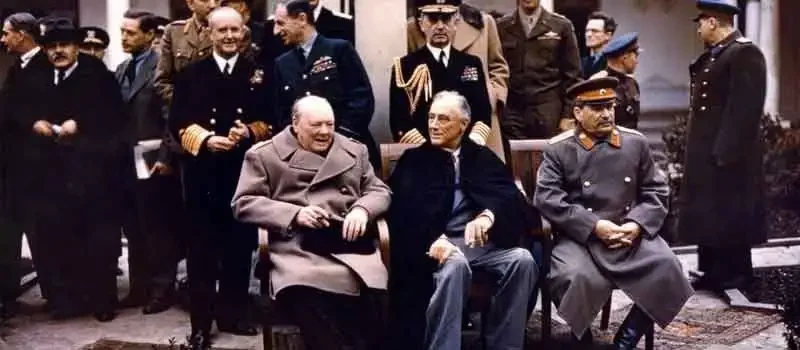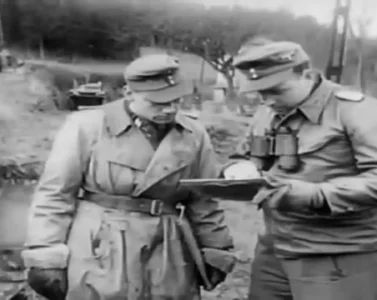- Military History
- Alliances, Treaties, Pacts & Commands
- Yalta Conference (1945)

Yalta Conference (1945) The repatriation of Soviet citizens, civilians and soldiers alike, forcibly deported by the Nazis
From the 4th February to the 11th of February 1945 the three major Allied leaders, Franklin D. Roosevelt of the United States, Winston Churchill of Great Britain and Josef Stalin of the Soviet Union, debated the outstanding questions of war and peace at Yalta in the Crimea. Although not the key issue, one subject for discussion was the treatment of prisoners of war.
The most crucial point concerned the repatriation of Soviet citizens, civilians and soldiers alike, forcibly deported by the Nazis to Germany and German-occupied countries and liberated because of military operations undertaken by the Western Allies. The Soviet government considered that these citizens should be regarded, not as war prisoners, but as free nationals of an Allied (Soviet) power, and consequently should be placed in camps separate from German POWs.
The Western Allies repatriated two million Russians to the Soviet Union in the years 1945-1947. Repatriation operations took place in Germany proper and in Norway, the Netherlands, Belgium, France, and even in North Africa. Soviet citizens, soldiers and civilians alike, were handed over to the Soviet security agencies - the NKVD and SMERSH (literally, SMERt' SHpionov, or "Death to Spies"). In addition, thousands of Tsarist exiles were surrendered against their will to the Soviet Union; these people had never lived in the Soviet Union, having fled Russia in 1919 as allies of the British and Americans, and therefore were not covered by the Yalta Agreement.
The policy adopted by the U.S. and British governments was that all claimants to Soviet nationality were to be released to the Soviet government, irrespective of their wishes. Once repatriated to the Soviet Union, most of the Russian prisoners vanished in the Gulag system. For Stalin, these repatriates were traitors; to fall into German captivity, instead of dying in battle, was considered an act of treason against the Soviet Motherland.
The U.S. and British governments kept the repatriation operations secret, fearing a public revolt against the brutal measures toward Russian prisoners, particularly in view of the large numbers of women and children involved. Moreover, U.S. and British officials did not want to endanger the alliance with the Soviet Union: to refuse the Soviet government's request for the return of its citizens would lead to serious trouble. The Soviets would not understand Western humanitarian motives and would protest that they were being treated differently than other Allied countries.
Allied intelligence estimated that there were 40,000 British and 75,000 Americans imprisoned by the Soviets in eastern Europe and the Soviet Union, and the Western Allies feared that their own prisoners would not be released if they protested Soviet repatriation. The POW question became a bargaining chip between the western Allies and the Soviet Union.
Yalta Conference (1945) - Quick Facts
- Germany Nazi (1933-1945)
- Russia Soviet Union (1918-92)
- United States
- United Kingdom
Map
- {{#owner}}
- {{#url}} {{#avatarSrc}}
{{name}} {{/url}} {{^url}} {{#avatar}} {{& avatar}} {{/avatar}} {{name}} {{/url}} - {{/owner}} {{#created}}
- {{created}} {{/created}}























